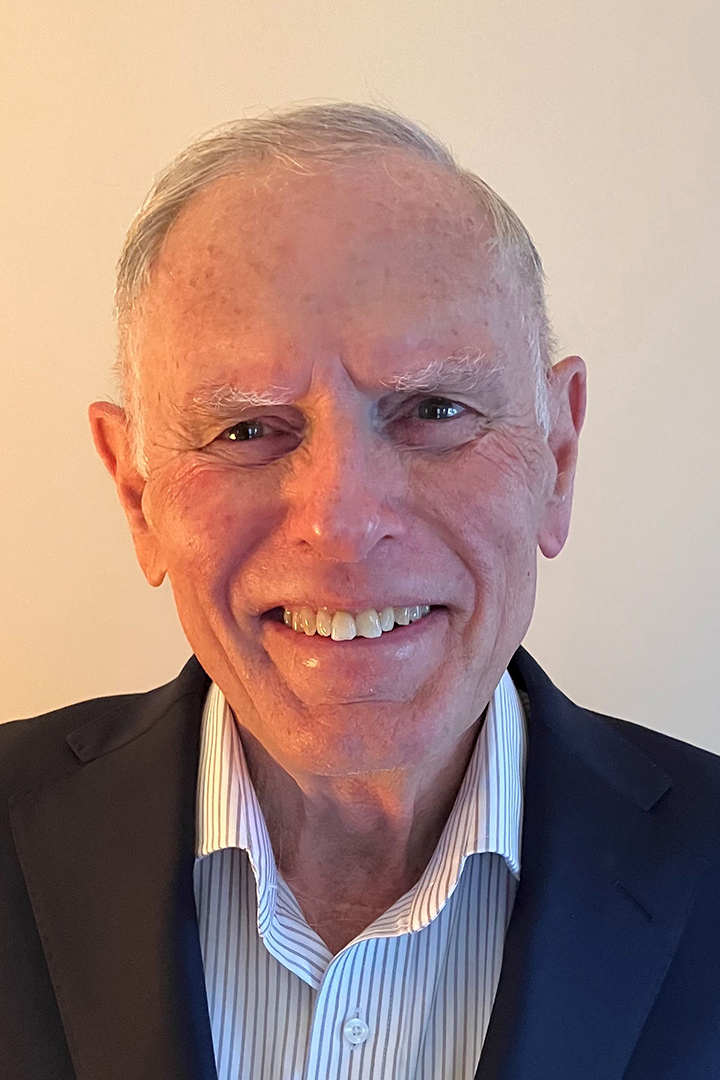Gift honours family’s farming heritage and value of One Health research
A philanthropist with deep Saskatchewan roots and a decades-long commitment to health care ethics has made a significant donation in support of One Health-focused research at the Western College of Veterinary Medicine (WCVM) on the University of Saskatchewan (USask) campus.
By Tyler SchroederPhoto: Dave Stobbe

Reverend H. Jason Reed has donated $400,000 to establish the Reverend H. Jason Reed and Ann Jorgensen Reed One Health Research Fund at the WCVM. It will support graduate-level research in the critical field of One Health — a concept that recognizes the interconnectedness of human, animal and environmental health.
“I’m not engaging in hyperbole when I say that supporting research like that of the One Health initiative is one of the most important things that we can do as human beings,” says Reed, who was born and raised in Saskatchewan but now resides in Naperville, Ill. “My hope is that new research will enable and protect our collective health and build toward a strong and sustainable future.”
The new fund honours Reed’s late wife, Ann Jorgensen Reed, who passed away in 2022 after an 18-year battle with cancer. His donation also pays tribute to his family's long history of farming in Saskatchewan that dates back more than a century.
Reed’s grandfather homesteaded near Loreburn, Sask., in 1912. Two decades later in the 1930s, Reed’s father studied engineering at USask for three years until he had to drop out due to the financial hardships of the Great Depression. The Reed family managed to keep their land despite the hard times, and Reed’s father farmed in the area for multiple years.
Growing up on the farm, Reed became acquainted with animal husbandry at an early age. He learned the value of raising cattle, pigs and chickens while developing a strong work ethic and an awareness of the needs of the land and animals.
“We were a typical farm family that was always concerned about the well-being of our animals and their health because we depended on them for income,” he says. “As a teenage boy I would also occasionally help out our local veterinarian working with pigs on local field calls, so I learned a lot about our responsibilities in [animal] welfare.”
That sense of responsibility continued throughout Reed’s professional life, first receiving an undergraduate degree in liberal arts at Wabash College in Crawfordsville, Ind., followed by clergy studies at the University of Chicago Divinity School in Illinois.
As part of his education, Reed trained at the University of Chicago General Hospital and developed an interest in medical ethics and methods of delivering health care to patients. He spent four years as a pastoral counsellor in a medical centre that incorporated his services in holistic health care along with primary care professionals. Reed also served as a reverend for four United Methodist churches in Chicago’s suburbs during his 40-year career.
Reed’s personal perspectives about human and animal health welfare have influenced his concerns about society’s response to emerging global health issues — including climate change, disease outbreaks and food security.
“It's a combination of things that has caught my attention because of my background and involvement in the medical area. We’re a vulnerable species and the outcomes can be so devastating. My wife had an 18-year battle with cancer, and she died in July of 2022. In the last month of her life, her death was aggravated by a case of COVID-19 that she contracted in our local hospital’s intensive care unit,” he says.
“In her memory, I wanted to have the opportunity to contribute to the betterment of the world we live in.”
Reed decided to contribute to research programs that could address these interconnected health issues. He discovered the university’s One Health focus — one of its Signature Areas of Research — and was immediately drawn to its goals. He was especially interested in research targeting vaccine development and other preventive measures for zoonotic diseases — illnesses that can be transmitted between animals and people.
In addition to the WCVM gift, Reed contributed an additional $400,000 in research aid to the USask College of Agriculture and Bioresources.
After visiting the WCVM and learning more about its many research activities in One Health, Reed knew it was a perfect match for his vision.
"I was thrilled when I learned about the One Health initiative,” Reed says. “It fit perfectly with my values, particularly the work being done to develop vaccines to address the transmission of diseases across species. This is an area of research that is critical to our future, and I wanted to contribute to it in a meaningful way."
The new research fund will begin supporting One Health-focused research projects at the college this year and will be used over the coming years.
As Reed reflects on his own life’s work and the legacy of his family, he urges others to invest in the health of the planet and its inhabitants.
"We are all interconnected and the health of one species impacts the health of all of us. The research being done at institutions like the University of Saskatchewan and WCVM is crucial," says Reed. "It’s essential to building a sustainable and healthy future.”
Together, we will undertake the research the world needs. We invite you to join by supporting critical research at USask.
